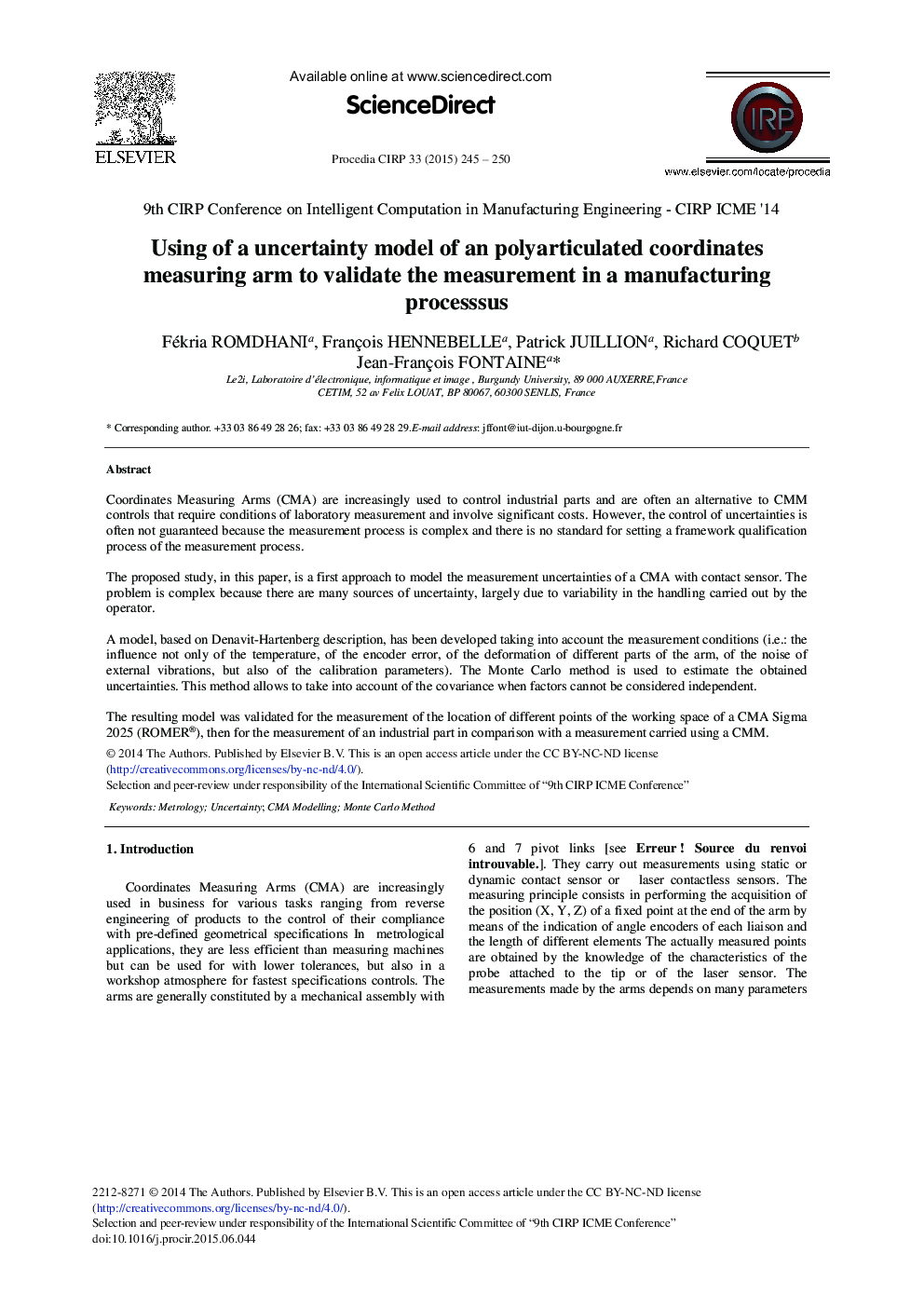| Article ID | Journal | Published Year | Pages | File Type |
|---|---|---|---|---|
| 1699323 | Procedia CIRP | 2015 | 6 Pages |
Coordinates Measuring Arms (CMA) are increasingly used to control industrial parts and are often an alternative to CMM controls that require conditions of laboratory measurement and involve significant costs. However, the control of uncertainties is often not guaranteed because the measurement process is complex and there is no standard for setting a framework qualification process of the measurement process.The proposed study, in this paper, is a first approach to model the measurement uncertainties of a CMA with contact sensor. The problem is complex because there are many sources of uncertainty, largely due to variability in the handling carried out by the operator.A model, based on Denavit-Hartenberg description, has been developed taking into account the measurement conditions (i.e.: the influence not only of the temperature, of the encoder error, of the deformation of different parts of the arm, of the noise of external vibrations, but also of the calibration parameters). The Monte Carlo method is used to estimate the obtained uncertainties. This method allows to take into account of the covariance when factors cannot be considered independent.The resulting model was validated for the measurement of the location of different points of the working space of a CMA Sigma 2025 (ROMER®), then for the measurement of an industrial part in comparison with a measurement carried using a CMM.
